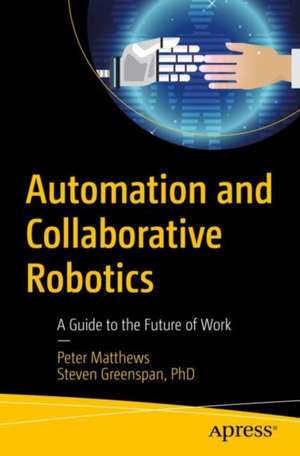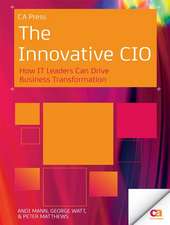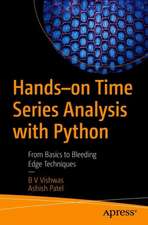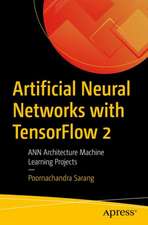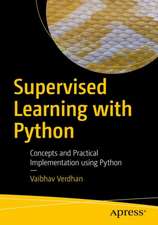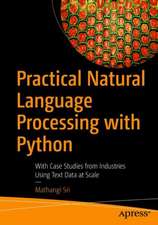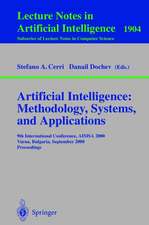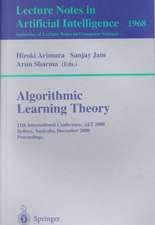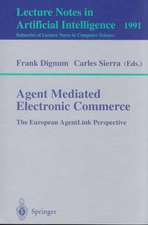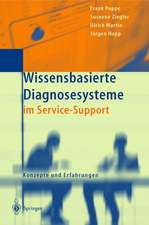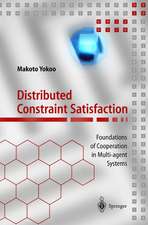Automation and Collaborative Robotics: A Guide to the Future of Work
Autor Peter Matthews, Steven Greenspanen Limba Engleză Paperback – iul 2020
Rapid advances in automation and robotics technologies are often reported in the trade and general media, often relying on scary headlines such as “Jobs Lost to Robots.” It is certainly true that work will change with the advent of smarter and faster automated workers; however, the scope and scale of the changes is still unknown. Automation may seem to be here already, but we are only at the early stages.
Automation and Collaborative Robotics explores the output of current research projects that are improving the building blocks of an automated world. Research into collaborative robotics (cobotics) is merging digital, audio, and visual data to generate a commonly held view between cobots and their human collaborators. Low-power machine learning at the edge of the network can deliver decision making on cobots or to their manipulations. Topics covered in this book include:
- Robotic process automation, chatbots, and their impact in the near future
- The hype of automation and headlines leading to concerns over the future of work
- Component technologies that are still in the research labs
- Foundational technologies and collaboration that will enable many tasks to be automated with human workers being re-skilled and displaced rather than replaced
What You Will Learn
- Be aware of the technologies currently being researched to improve or deliver automation
- Understand the impact of robotics, other automation technologies, and the impact of AI on automation
- Get an idea of how far we are from implementation of an automated future
- Know what work will look like in the future with thedeployment of these technologies
Who This Book Is For
Technical and business managers interested in the future of automation and robotics, and the impact it will have on their organizations, customers, and the business world in general
Preț: 236.40 lei
Preț vechi: 295.49 lei
-20% Nou
Puncte Express: 355
Preț estimativ în valută:
45.25€ • 49.17$ • 38.03£
45.25€ • 49.17$ • 38.03£
Carte disponibilă
Livrare economică 31 martie-14 aprilie
Preluare comenzi: 021 569.72.76
Specificații
ISBN-13: 9781484259634
ISBN-10: 1484259637
Pagini: 212
Ilustrații: XXII, 271 p. 21 illus.
Dimensiuni: 155 x 235 x 20 mm
Greutate: 0.42 kg
Ediția:1st ed.
Editura: Apress
Colecția Apress
Locul publicării:Berkeley, CA, United States
ISBN-10: 1484259637
Pagini: 212
Ilustrații: XXII, 271 p. 21 illus.
Dimensiuni: 155 x 235 x 20 mm
Greutate: 0.42 kg
Ediția:1st ed.
Editura: Apress
Colecția Apress
Locul publicării:Berkeley, CA, United States
Cuprins
Part 1: Preparing for the Future of Work.- Chapter 1: Will Robots Replace You?.- Chapter 2: Technology Definitions.- Part 2: Robots are Working.- Chapter 3: Robotic Process Automation.- Chapter 4: Robots in Teams.- Chapter 5: Robots Without Arms.- Part 3: Making Sense for Robots and Society.- Chapter 6: Robots in a World of Data.- Chapter 7: Robots in Society.- Chapter 8: Work in the Future.
Notă biografică
Peter Matthews, based in the UK, is a writer and research scientist. Peter has more than 40 years of IT experience ranging from mainframe/Unix programming, development and relational databases to secure cloud computing, DevOps and cobotics. Peter’s research work has been concerned with leading edge technology for a major proportion of that time. Projects have included machine learning algorithms for soccer clubs, multi-level secure database systems and object-oriented application infrastructures. He has also led groups investigating the influence of macro social, political and economic trends on future technology.
Peter’s current research is focused on automation and robotics. Past research has covered Internet of Things, cloud computing, data curation, smart buildings and cobotics. Peter has been the CA project lead on cobotics under the auspices of the Centre forVisual and Decision Informatics, a USA National Science Foundation initiative. Peter has authored and co-authored academic papers including “Data Is the New Currency” in the proceedings of New Security Paradigms Workshop. Other writing includes books on “Ingres Visual Programming”, co-authoring of “The Innovative CIO: How IT Leaders Can Drive Business Innovation” and co-editor/contributor to “MOdel-Driven Approach for design and execution of applications on multiple Clouds”
Steven Greenspan, PhD is an innovator of information and communications technology (ICT), with over 50 publications in peer-reviewed journals and 79 US patents, including the first patent to describe two-factor and two-device authentication and authorization. This invention is widely used throughout the world to ensure secure access to web services and it showcased the value of keeping the human-in-the-loop. His current research interests include user experience and collaboration in complex systems, differential privacy, ethical decision-making, and innovative approaches for integrating scientific research into socially responsible applications and services. Outside of his professional work, he devotes much of his time to community groups that focus on environmental, economic and social justice. He also serves on the advisory boards of the AABGU/ Philadelphia Academic Bridge, and several startups.
Steve has a PhD in Cognitive Psychology from the State University of New York at Buffalo and conducted postdoctoral research at the University of California at San Diego and Indiana University. During the writing of this book, he was a Visiting Scholar at the University of Virginia. Previously, he was a Research Scientist and Vice President of Strategic Research at CA Technologies managing an international team of information technology scientists. He has also consulted to Avaya on the UX design of mobile phones, and was a Distinguished Member of the Technical Staff at AT&T Bell Laboratories.
Peter’s current research is focused on automation and robotics. Past research has covered Internet of Things, cloud computing, data curation, smart buildings and cobotics. Peter has been the CA project lead on cobotics under the auspices of the Centre forVisual and Decision Informatics, a USA National Science Foundation initiative. Peter has authored and co-authored academic papers including “Data Is the New Currency” in the proceedings of New Security Paradigms Workshop. Other writing includes books on “Ingres Visual Programming”, co-authoring of “The Innovative CIO: How IT Leaders Can Drive Business Innovation” and co-editor/contributor to “MOdel-Driven Approach for design and execution of applications on multiple Clouds”
Steven Greenspan, PhD is an innovator of information and communications technology (ICT), with over 50 publications in peer-reviewed journals and 79 US patents, including the first patent to describe two-factor and two-device authentication and authorization. This invention is widely used throughout the world to ensure secure access to web services and it showcased the value of keeping the human-in-the-loop. His current research interests include user experience and collaboration in complex systems, differential privacy, ethical decision-making, and innovative approaches for integrating scientific research into socially responsible applications and services. Outside of his professional work, he devotes much of his time to community groups that focus on environmental, economic and social justice. He also serves on the advisory boards of the AABGU/ Philadelphia Academic Bridge, and several startups.
Steve has a PhD in Cognitive Psychology from the State University of New York at Buffalo and conducted postdoctoral research at the University of California at San Diego and Indiana University. During the writing of this book, he was a Visiting Scholar at the University of Virginia. Previously, he was a Research Scientist and Vice President of Strategic Research at CA Technologies managing an international team of information technology scientists. He has also consulted to Avaya on the UX design of mobile phones, and was a Distinguished Member of the Technical Staff at AT&T Bell Laboratories.
Textul de pe ultima copertă
Understand the current and future research into technologies that underpin the increasing capabilities of automation technologies and their impact on the working world of the future.
Rapid advances in automation and robotics technologies are often reported in the trade and general media, often relying on scary headlines such as “Jobs Lost to Robots.” It is certainly true that work will change with the advent of smarter and faster automated workers; however, the scope and scale of the changes is still unknown. Automation may seem to be here already, but we are only at the early stages.
Automation and Collaborative Robotics explores the output of current research projects that are improving the building blocks of an automated world. Research into collaborative robotics (cobotics) is merging digital, audio, and visual data to generate a commonly held view between cobots and their human collaborators. Low-power machine learning at the edge of the network candeliver decision making on cobots or to their manipulations. Topics covered in this book include:
Rapid advances in automation and robotics technologies are often reported in the trade and general media, often relying on scary headlines such as “Jobs Lost to Robots.” It is certainly true that work will change with the advent of smarter and faster automated workers; however, the scope and scale of the changes is still unknown. Automation may seem to be here already, but we are only at the early stages.
Automation and Collaborative Robotics explores the output of current research projects that are improving the building blocks of an automated world. Research into collaborative robotics (cobotics) is merging digital, audio, and visual data to generate a commonly held view between cobots and their human collaborators. Low-power machine learning at the edge of the network candeliver decision making on cobots or to their manipulations. Topics covered in this book include:
- Robotic process automation, chatbots, and their impact in the near future
- The hype of automation and headlines leading to concerns over the future of work
- Component technologies that are still in the research labs
- Foundational technologies and collaboration that will enable many tasks to be automated with human workers being re-skilled and displaced rather than replaced
- Be aware of the technologies currently being researched to improve or deliver automation
- Understand the impact of robotics, other automation technologies, and the impact of AI on automation
- Get an idea of how far we are from implementation of an automated future
- Know what work will look like in the future with the deployment of these technologies
Caracteristici
Details the technologies that you need to understand to adapt to a changing world of work, including the building blocks of automation and robotics Covers real-world examples of research projects executed by the authors, discussing changes to work, tasks, and jobs in the future Reports on research that will enable automation in the speculative context of massive disruption to work
